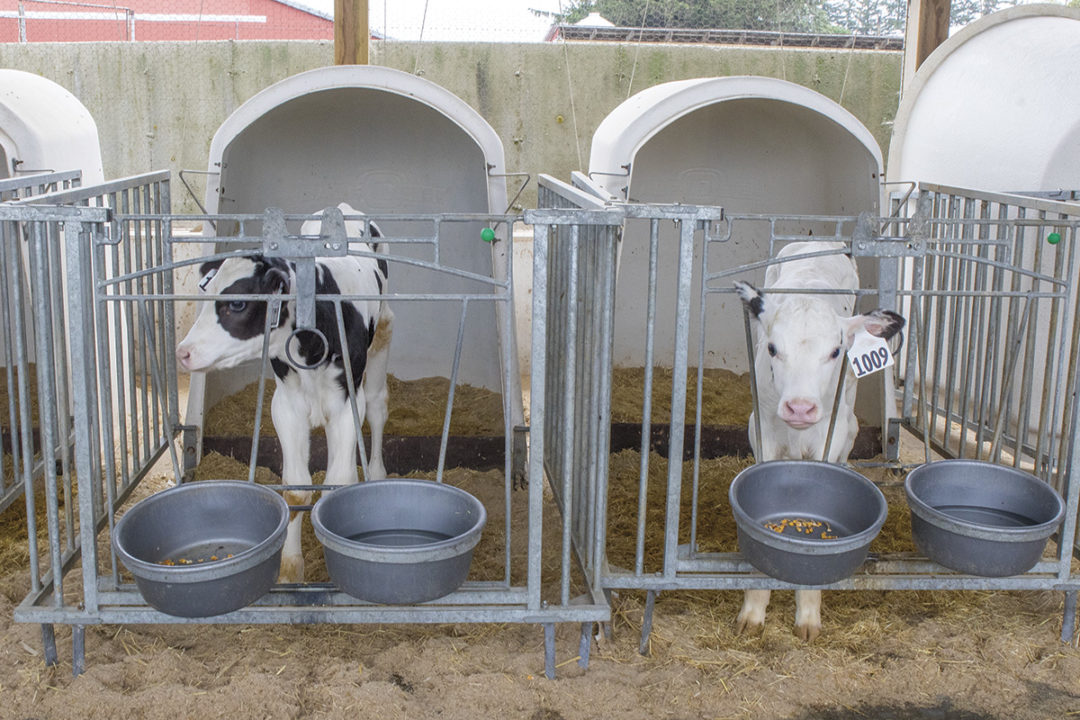To read this article in French, click here.
With warmer weather on the horizon, the thought of flies around the farm starts to become a concern. Flies not only spread disease-causing bacteria but also can lower milk production.
Here are some steps you can take to manage fly control product usage efficiently.
1. Sanitation/cleanliness – Spend extra time cleaning areas where there is decaying organic matter such as freestalls, calf housing, drainage areas, around waterers and feed mixing areas. When these are cleaned and organic matter is moved and separated, it breaks the fly’s reproductive cycle.
- Calf hutches – Weekly cleanings and moving hutches to dry areas will help reduce the breeding ground for flies. Flies act as carriers of viruses and bacteria, for example, from diarrhea between, or and maggots around dehorning and umbilical cord areas.
- Lagoons – Agitating, adding water and periodic rainfall will all help to drown fly larvae.
- Milking parlors – Ensuring that the proper sanitation protocols are being followed and having adequate ventilation will help to minimize flies throughout the summer.
- Property – Maintain grass and weeds around buildings and spread out grass clumps and mulch.
2. Air flow – Proper air flow should produce a down and outward flow, which will help limit fly activity in barns and other places that are enclosed.
3. Products – When flies do become a problem, make sure you have an effective fly control program in place that uses a combination of products (larvicides and adulticides) that attack different types of flies at different stages of the fly life cycle with various environmental, biological and chemical techniques.
When choosing a product that’s best for your operation, it’s important to know what type of insect is controlled or reduced with use, what stage it’s in and which technique to use. It’s also important to read the product label to know where you can and can’t use the product.
Ask your veterinarian if you need assistance in developing a comprehensive fly control program.







